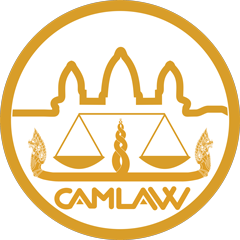CONSTITUTION
Cambodia’s Constitution was adopted by the Constitutional Assembly on September 21, 1993. It is the supreme law of the Kingdom of Cambodia and organizes Cambodia’s government and institutions. All laws and regulations derive from the Constitution’s provisions and must conform to it.1 The Constitution addresses questions of sovereignty, the role and status of the king, the fundamental rights of the Khmer citizens, the economy, education, culture and social affairs, the functioning of the National Assembly, the Senate, congress and the government, the functioning of the judiciary, Constitutional Council and the administration.
HIERARCHY OF LAWS AND REGULATIONS
Law and regulations are classified in order of importance. There are numerous legal norms adopted by the legislative and executive powers: Constitution, laws, decrees, decisions, and so on. There is a strict hierarchy between them, so that each norm of a lower level must conform with those of a higher value. This prevents conflict between norms.
THE LEGISLATIVE PROCESS
The National Assembly and the Senate share the legislative power.10 Senators, members of the National Assembly and the prime minister have the right to initiate legislation by making draft laws or proposed laws.11 The legislative process usually takes a few months to be completed. However, in cases of emergency the process is shortened and laws can be approved within days.
Laws are enacted after an absolute majority (50% + 1) of the National Assembly votes to adopt the law.12
THE JUDICIARY AND COURTS
The Cambodian judicial system is composed of courts of first instance, appeals courts, and a Supreme Court.
According to article 128 of the Constitution, the judiciary is independent, guaranteeing and upholding impartiality and protecting the rights and freedoms of the citizens. The Constitution also states that judicial power should not be granted to the legislative or executive branches and should cover all lawsuits, including administrative ones. The Constitution of Cambodia leaves the functioning of the judiciary to be determined in a separate law. The law on the organization and the activities of the adjudicate courts was promulgated in 1993.
Trials are conducted in the name of the Khmer citizens in accordance with the legal procedures and laws into force. Only judges have the right to adjudicate. A judge must fulfill this duty with strict respect of laws, wholeheartedly and conscientiously.19
Fair trial rights are embedded in a wide range of laws and procedural rules. The presumption of innocence, burden of proof, and rules governing the admissibility and exclusion of evidence are examples of codified fair trial rights afforded to all.
Click here to browse our Laws & Regulations database

